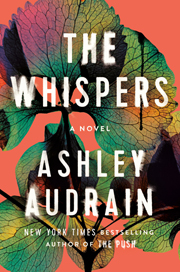
| Mon
Tue
Wed
Thu
Book Info
Subscribe
| |||
Dear Reader, (Suzanne is out today, but she’s featuring one of her favorites…) When the drugstore clerk realized that I was going to pay for my $3.55 purchase using change, she gave me that, "You've got to be kidding me" look. No, I was quite serious. Yes, I have a credit card, but it was $3.55. Exactly when did change become an extinct form of tender? Remember coins--you know those silver-looking dimes, nickels and quarters? (There wasn't a single penny in the pile.) The clerk took my change, but she let me know that she was doing me one huge favor. It was one of those times I wished I could have delivered a killer comeback, but unfortunately my mind was blank. (After I left, I thought of 10 real good zingers.) “A Place to Land: Lost and Found in an Unlikely Friendship” author Martha Manning experienced a similar situation, and described it to a tee when she said, "The guy collects the piles of coins like I've deposited turds on his counter." Touche Martha, you really have a way with words. (When this column was first featured, it inspired Kathy, a reader at the book club to share a memory of hers… "Suzanne, Your story brought back an old memory. Back in the '60's (when I was a little girl), a local church was having a yard sale. I looked through all the booths, trying to find something for my mother. Then...there it was! The perfect gift for her--a tiny little pewter bible–which opened up to reveal a ruby-colored rosary. The price tag said 25 cents, so I counted out all of my 25 pennies and gave it to the lady working the booth. I was devastated (really) when the lady turned down my hard-earned money. She said she wouldn't take pennies. I was heartbroken, and felt kind of stupid too. Well, it was an early lesson in the ways of the world. Now I save all my pennies in a big earthenware jug, and every so often I trade them in at the bank."--Kathy Thanks for reading with me. It's so good to read with friends. Suzanne Beecher P. S. Congratulations to the winners of last week's book giveaway: Pat O., Deborah M., Sally J., Vivi J., Connie R., Andi K., Jessica T., Merrilee G., Mary Jane J., Amy D. You could be a winner, too, but you have to enter for your chance! | |||
The Whispers: A Novel Book Club Picks Author Panel Featuring Ashley Audrain | |||
|
"There are studies that show patients in this condition know when family members are with them. You can hold his hand and talk to him, like you would if he was awake. Okay?" Whitney stands and gathers the hem of her sweatshirt in her hands. She lets Rebecca slip her strong, steadying arm under her as they walk down the hall. Until Whitney becomes rigid. She turns her face toward Rebecca and their eyes meet for the first time. "Is this why you don't have children?" Rebecca pauses. She doesn't know what to say. This job? This hospital? This constant fear of something going wrong, the unbearable pain if it does? She thinks of the hours she has spent on the floor of her bathroom. The bloody orbs sinking to the bottom of toilet bowls, the dancing strings of mucus. The weight of the hand towel on her lap on the way to the hospital. Why doesn't she have children? Because she cannot keep her own alive. Blair Good morning, darling girl. How'd you sleep?" Chloe slips her arms around Blair's soft middle and squeezes. She's a slate wiped clean each morning. Blair rips a banana from the fruit bowl and puts it on her plate, along with one of the muffins she made yesterday while it rained in the afternoon. Because it had been Wednesday, and that is what she does on Wednesdays. The muffins, the bedsheets, the rinsing of the washing machine drum with white vinegar and baking soda. Sometimes she feels embarrassingly unevolved. Chloe licks the excess cream cheese from the side of the bagel and makes noises of approval. She wonders if Aiden ever notices the list she works her way through every day. Or the schedule she writes in the squares of the kitchen calendar. She wonders if he knows an eleven-year-old washing-machine drum needs to be cleaned at all. Maybe she'll leave the soiled rags on his side of the bed tonight, so that at least he'll know what an elevenyear-old washing machine smells like. But now, it is Thursday. The bathroom. Chloe's library books are due. Blair packed them in her knapsack last night, along with the bento box and clean gym clothes and a note to say she loved her, after she'd emptied the bits of crumb and playground sand into the sink. And then she'd taken two Advil for a headache and gone to bed early. Aiden said he had to work late on a presentation. He'd already left for the gym when she got up; he must have had an early start today. She doesn't remember feeling him in the bed beside her last night. But sometimes he sleeps in the spare bedroom so he doesn't wake her up when he comes home. She is peeling the paper from the base of her bran muffin when she lets herself wonder: 'had' he come home? She puts a chunk between her teeth. She imagines Aiden slipping in quietly to kiss their daughter as she sleeps, with a mouth covered in the filth of another woman. She can't swallow the muffin. She spits it into the garbage. "Coat and shoes, Chloe, time to go!" She is a good girl, a smart girl, an only child who likes routine and clean hair and always says please, and yet her needs consume Blair. Or Blair finds herself needing to be consumed. She'd once felt she was the only person who could do what she does for her daughter in the way that she does. It's why she never went back to work eight years ago after Chloe was born. And why she's ended up where she is now. Feeling unremarkable. She is forty, and at forty, possibility feels increasingly behind her. Blair kisses Chloe good-bye at the door and turns to face the empty house. Most mornings of the week, Chloe walks the four blocks to school with her best friend, Xavier. Blair must convince herself each time that she has made it there safe. That she isn't in the back of a pedophile's van. If her phone rings in the morning, the thought occurs to her instantly: it's the school, and she never arrived. This maternal worry is the resting state of her mind. Upstairs, she puts her nose against the concave ceramic of the bathroom sink. She is searching for the smell of the spearmint toothpaste Aiden would have spit, had he been home this morning. There's only a hint of Chloe's fluoride-free berry. The white towel hangs dry on the back of the door, although this isn't unusual. He showers at the gym on the days he works out. Everything can be explained if she wants it to be. Everything can scream at her if she lets it. She reaches under the sink for the bleach cleaner and sprays the tiles. She does not stop when the fumes sting her eyes. The questions anesthetize her. Who is he fucking? And how is he fucking her? And where is the fucking happening? The rivers of bleach race down the wall. The details of the affair feel more important than what the affair means, and this makes no sense, she knows, but the human brain has a way of desperately wanting to know how the very worst things happen. We can't accept someone's death until it's explained—how and when and where? But this is also a way of distracting herself from the truth, one that scares her more than the possibility of the affair and what it would mean: that she would do absolutely nothing about it at all. That she'll quiet the whispers and throw out the foil. She'll tell herself he's only at the gym, only in a meeting every time he doesn't pick up. She'll choose to live with this, the tinny white noise in the background of their lives, because she cannot accept the consequences of the alternative. And nobody would have to know. The aloneness she feels, it's humiliating. She is staring at a spot of mold when she's startled by Chloe shouting from downstairs. "Mom? Xavi isn't home." "What do you mean?" "I mean nobody answered the door. I waited forever." Blair flies down the stairs, thinking of the time, of how Chloe will be late for school now. Chloe's face scrunches into the watch she's just learned to read. "Am I going to miss the bell?" "Maybe he's gone early for chess club and forgot to tell you." But it's unusual. Whitney will have left for work early, and Jacob is out of town, but their nanny, Louisa, would have been there, she is always there, marching those kids through the day. "It's June now, Mom, chess club is over. Can you text Whitney and ask her where he is?" "All right, but let's start walking, I'll go with you." She sends the text while she wiggles her feet into her sneakers, the laces still tied. She stomps the sidewalk with satisfaction—she was home, she was ready and available. Look at my value. Look at how our daughter still needs me. She likes to orate in her head the things she wants her husband to hear. In the morning, the commute flows through Harlow Street like a parade. Parents herding toddlers to preschool. Hollering city kids on scooters. Twentysomethings on bikes dodging cars, on the way to the kind of underpaid marketing job she used to have. This eclectic part of the city was once full of young Portuguese families who couldn't afford to buy homes anywhere else. Now, they've turned their properties over to people paying prices they never dreamed of seeing fifty years ago. Like Blair and Aiden, who have a mortgage so high that the number no longer feels real. They march past the houses lined like monsters' teeth, unmatched and crooked, million-dollar rebuilds wedged between leaning, unloved Victorians biding time with painted brick. 'Vogue' had called it the next coolest neighborhood in the world, something people cited as though it justified two million dollars for a semidetached house with a rotting basement and original avocado-colored toilets. They turn right off Harlow, past the poorly aged bakeries and the few remaining stores that imported clothes from Lisbon.
(continued on Friday) Love this book? Share your review with the Publisher
| |||
| Mon Tue Wed Thu Book Info | |||

